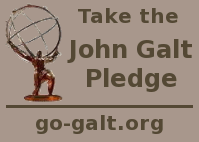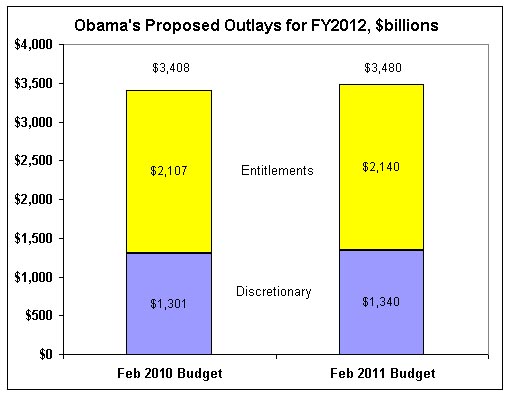11-26-2009

Permalink


Joe Galloway
|
Subject: Thanksgiving: Learning How to Appreciate Your Rights
Joe Galloway is a combat journalist and author of the book "We Were
Soldiers Once ... and Young". On a recent book tour through Lubbock,
TX, he offered his views on military conscription, as reported in this article from Texas Tech:
|
"When I was growing up, there was a draft," he said.
"We fought World War II, Korea, and Vietnam on the draft,
and nobody liked it, but it reached out and pulled in Americans
from all walks of life, and that wasn't a bad thing at all.
"We are a nation of 300 million people and fewer than one
percent of us wear the uniform and do all of the serving
and sacrificing for all of the other 299 million, and they've
been worked pretty hard these last eight years."
The U.S. dropped the draft system after the Vietnam War, but
Galloway said he believes the United States would benefit
from some program that compelled young men and women into
national service, creating more appreciation for the
liberties they enjoy as Americans.
|
In a video interview attached to the article, Mr. Galloway states:
|
"I don't think that's what the Founding Fathers had in mind
when they set things up. They thought you had to earn your
freedom and democracy"
|
This got me thinking about the issue of Americans appreciating or
failing to appreciate certain aspects of their lives, and I am in
agreement with Galloway that many people in the U.S. have no real
understanding of the nature of their individual rights, including
their liberty, and therefore fail to properly appreciate them. But
I cannot agree with Galloway's solution — the same one being
proposed by the Obama administration — which is to violate
those very rights in an effort to teach people to treasure them!
The "right to life" identifies that each person's life is
sacrosanct and may not be violated by another, while the "right
to liberty" means that each individual may select their own goals
and pursuits in accordance with their will, free from external
compulsion. I am sure that it is true that if you conscript a
person into national service for a few years against their will,
command their every move during that period, and place them in
combat situations where their very life is in grave danger, if they
survive the experience and are once again freed, most people will
come away with a deeper appreciation for their life and their
liberty. Of course, the same thing can be said for a survivor of a
Siberian Gulag,
and, in principle, there is no real difference between these two
situations, as both are violations of the rights of the individual.
I also disagree with Galloway's interpretation of the Founding Father's
intentions with regards to our rights. The Declaration of Independence
states that we possess:
"certain unalienable rights, that among these are Life,
Liberty and the pursuit of Happiness."
which means that these rights are absolute and an indivisible part of
our human nature. Quoting from
unalienable.com:
|
The absolute rights of individuals may be resolved into the
right of personal security, the right of personal liberty, and
the right to acquire and enjoy property. These rights are
declared to be natural, inherent, and unalienable.
[Atchison & N. R. Co. v. Baty, 6 Neb. 37, 40,
29 Am. Rep. 356.]
By the "absolute rights" of individuals is meant those which
are so in their primary and strictest sense, such as would
belong to their persons merely in a state of nature, and which
every man is entitled to enjoy, whether out of society or in
it. The rights of personal security, of personal liberty, and
private property do not depend upon the Constitution for their
existence. They existed before the Constitution was made, or
the government was organized. These are what are termed the
"absolute rights" of individuals, which belong to them
independently of all government, and which all governments
which derive their power from the consent of the governed were
instituted to protect. [People v. Berberrich
(N. Y.) 20 Barb. 224, 229; McCartee v. Orphan Asylum Soc.
(N. Y.) 9 Cow. 437, 511, 513, 18 Am. Dec. 516; People v.
Toynbee (N. Y.) 2 Parker, Cr. R. 329, 369, 370 (quoting 1 Bl.
Comm. 123).]
|
Clearly, if our rights are inherent, unalienable and exist outside of
the Constitution and any formation of government, then they are not
something that need to be earned. As the Declaration of Independence
clearly states, governments are not formed in order to dispense rights,
but instead:
"That to secure these rights, Governments are instituted
among Men, deriving their just Powers from the consent of the
governed"
The original purpose of our government's formation was to protect and
defend the individual rights of each citizen. It is some twisted form
of Orwellian illogic that concludes that those fundamental rights are
protected by their violation! And it is the cruelest perversion when
this method is applied to young, developing minds as is currently
being done in public school civic classes all across the nation. In
the name of "service-learning", school children are forced to perform
hours of "community service" work while any discussion of the nature
of individual rights and the guarantees of those rights in the U.S.
Constitution are buried. And this is after these same children have
already been conscripted into forced education.
People's gaps in knowledge, resulting in a corresponding failure to
grasp the true value of a thing, is certainly not limited to the
abstract concepts of individual rights. If one believes that it is
the government's function to determine what is of value for each of
us, and that it is the government's further role to educate us to
appreciate those values, even if force must be applied to achieve
that goal, then, in the spirit of the Thanksgiving holiday, let's
consider another program that might be implemented.
I suggest that every American be required to live in an isolated log
cabin in northern Minnesota for a period of two years: heating their
home with wood that must be cut, hauled and split; getting water from
a stream which must then be purified by boiling; using candles or
open pit fires for light; butchering their own meat; plowing, planting,
growing and harvesting their own crops; and maintaining the structure
as required, including building an optional outhouse if desired. Of
course, everyone would be encouraged to explore sources of alternative
energy, sustainable forestry, organic farming, low-impact waste
management, and energy conservation in their spare time. I know with
absolute certainty that anyone surviving this wonderful experience
would have "earned" a much greater respect and honest appreciation
for: the hot dog that they purchase at their grocery store; the
gallon of gasoline that they pump into their automobile; the flush
of a toilet; the flick of a switch that floods the room with light;
the push of a button that raises the room temperature by a few
degrees; the convenience of picking up the telephone and calling a
roofer when a leak is discovered; the simple pleasure of a conversation
with another person; and so much more!
If forced military, national or community-service are good ideas that
are justified due to their beneficial effect upon the conscriptee,
then I can see no argument against this proposal which would have
considerably more beneficial impact. Impact being the
operative word!
Of course, I'm kidding. I would never suggest that a program
like this was in any way justified in being imposed upon citizens of
a free country. I was just making a point about individual rights
and why conscription is wrong in principle. However, if someone
were to suggest that we make this a requirement for anyone running
for political office, then you would have my attention!
Happy Thanksgiving!
|







